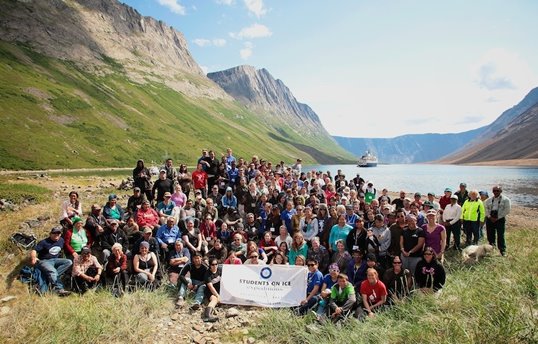Earlier this month, the Youth Arctic Coalition held its first conference entitled, “Breaking the Ice.” The organization, which is a global forum for youth to talk about environmental, social and economic conditions impacting the north, brought together young participants form the arctic states and indigenous groups to discuss issues such as education, housing, food security, employment, and climate change. The organization believes that “it is vital for youth to play a leading role in the pursuit of positive change for the benefit of the Arctic and its people,” and have an outlet that allows them to voice their opinions and influence the course of arctic governance.
The Arctic Council and Youth: The Call for Greater Inclusion
In an age of global warming, the discovery of oil and gas, and the opening of new shipping routes in the arctic, the circumpolar region has become strategically and economically more important within the international arena. Therefore, in 1966 the Arctic Council was established to provide a forum for intergovernmental cooperation, coordination and interaction between the Arctic States. Today, the council is comprised of the arctic nations: Canada, Denmark, Finland, Iceland, Norway, Russia, Sweden and the United States of America, and six permanent participants made up of Arctic organizations of Indigenous peoples. Today, there have been calls to strengthen the council, with one of those calls advocating for greater youth representation and engagement.
In 2011, the organization, Students on Ice presented a Youth Declaration Statement to the Arctic Council. The statement advocated the creation of a youth advisory body, which would allow young Northerners to “advise on policy development, and emphasize the global impacts of Arctic issues through outreach and community engagement.” The students believed that youth are key stakeholders in the arctic dialogue and should therefore have a voice in circumpolar affairs. A sentiment that was additionally expressed by the Arctic Council Chair, Canada’s Minister of Health, and Minister of Economic Development of the North, Leona Aglukkaq, who stated: “It is essential for us to engage youth as the circumpolar region prepares to face the future.”
Young Stakeholders: Building Their Own Future
Youth, in particular indigenous youth, can be considered key stakeholders in circumpolar affairs for two reasons. First, the North’s demographic can largely be described as a “youthful population. ” Northern populations are proportionately younger than their corresponding national counterparts. For example, in Canada, the median age of the Inuit population is 22 years while the national median is 38.8 years. The implication of this age difference is that in the future there will be a greater demand for social services, in particular, housing, employment and skills training. Therefore, by including youth in the Arctic Council framework, we can ensure that the decisions being made today reflect the needs of the indigenous communities tomorrow.
Second, young Northerners are directly impacted by the changes taking place in the Arctic. A report produced by the Arctic Council states that many young Northerners face higher risks of infectious diseases, suicide, and alcohol and drug abuse. Moreover, it states that high populations of adolescents in arctic nations like Canada are not completing secondary school, which impacts their ability to attain the necessary life skills to secure the jobs. In Canada, only half of the northern indigenous population has received a high school diploma. Therefore, as stated by Leona Aglukkaq: “If we are to successfully navigate the future of the Arctic, we must build a bridge between the traditional knowledge of the people who live there and the new realities of the present. We will look to [youth], our next generation of Arctic researchers, to build that bridge.”
Overall, it is important for youth to participate in the circumpolar dialogue. Doing so lets these young individuals shape the policies that impact their own economic, social and environmental conditions. And, with Canada advocating for the “Development for the People of the North,” through its Chairmanship, we hope that the engagement of youth will become a reality.





